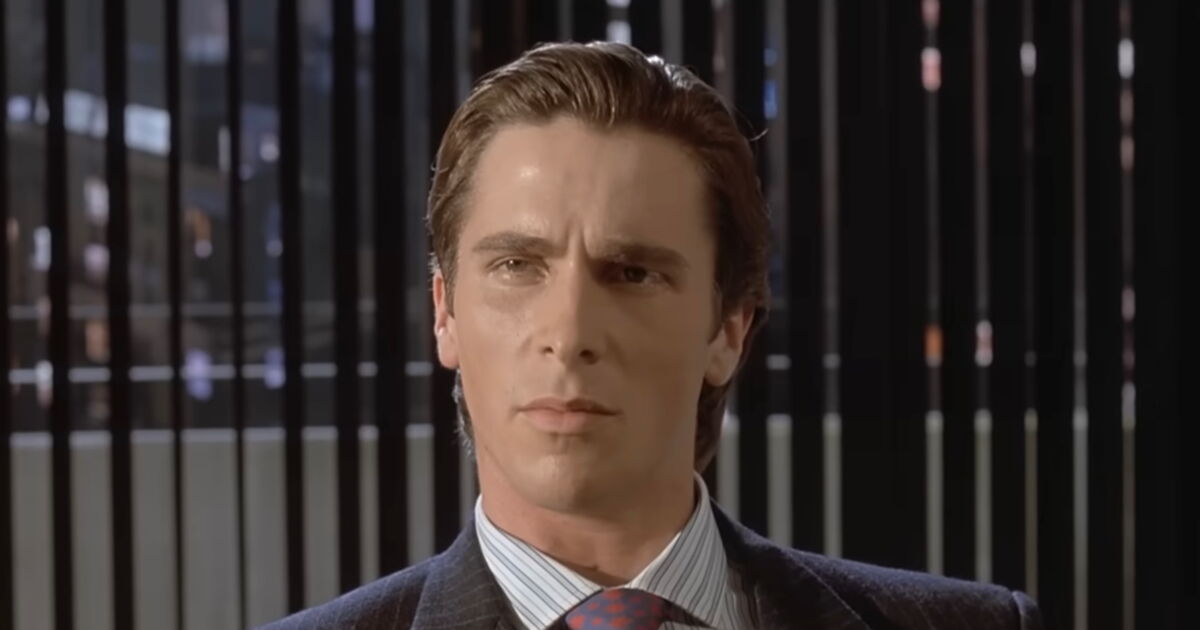
American Psycho director Mary Harron is marking her film’s 25th anniversary by reminding toxic male fans that the story of Patrick Bateman is actually a satire of Wall Street bro culture and 80s consumerism dreamed up by a gay man.
In an interview with Letterboxd, Harron said she has always been “mystified” by men who see the film’s titular serial killer (played by Christian Bale) as a role model. Letterboxd’s Mia Lee Vicino cites a 2022 GQ story about “sigma males” on TikTok who idolize Bateman’s stringent workout and skincare regimen, designer suits, hustle mindset, and misogyny.
Related
“Fight Club” is an icon of the alt-right. The director & out author say it’s not their fault.
“I’m not responsible for how people interpret things.”
Harron, who adapted the film’s screenplay from out author Bret Easton Ellis’s controversial 1991 novel along with out actress and writer Guinevere Turner, said those guys are missing the point of both her film and its source material.
Never Miss a Beat
Subscribe to our newsletter to stay ahead of the latest LGBTQ+ political news and insights.
Subscribe to our Newsletter today
“It was very clear to me and Guinevere, who is gay, that we saw it as a gay man’s satire on masculinity,” the I Shot Andy Warhol director said. “[Ellis’s] being gay allowed him to see the homoerotic rituals among these alpha males, which is also true in sports, and it’s true in Wall Street, and all these things where men are prizing their extreme competition and their ‘elevating their prowess’ kind of thing. There’s something very, very gay about the way they’re fetishizing looks, and the gym.”
Noting that Ellis’s novel received widespread backlash, including from feminist icon Gloria Steinem, for its depiction of violence against women when it was published, Harron said she always saw American Psycho as “a clear critique.”
“Not just of masculine behavior,” she explained, “it’s a critique of society, of the world of exploitation and consumption and greed and reduction of people.”
“I don’t think that Guinevere and I ever expected it to be embraced by Wall Street bros, at all. That was not our intention. So, did we fail? I’m not sure why [it happened], because Christian’s very clearly making fun of them,” Harron continued. “There’s [Bateman] being handsome and wearing good suits and having money and power. But at the same time, he’s played as somebody dorky and ridiculous. When he’s in a nightclub and he’s trying to speak to somebody about hip hop—it’s so embarrassing when he’s trying to be cool.”
Ellis would seem to agree. In a 2014 appearance on Marc Maron’s WTF podcast, the author, whose own work has shifted rightward in recent years, admitted that one of the things he liked about the film adaptation was that Harron and Bale’s comic flourishes clarified the story’s satire for readers who may have missed it in the novel.
While Harron didn’t comment on out director Luca Guadagnino’s upcoming American Psycho remake, which will reportedly transpose the Patrick Bateman’s story from the 1980s to the present day, she did admit that the novel and her film remain relevant 25 years later — but not for the reasons toxic male fans think.
“It was about a predatory society, and now the society is actually, 25 years later, much worse. The rich are much richer, the poor are poorer,” she said. “I would never have imagined that there would be a celebration of racism and white supremacy, which is basically what we have in the White House. I would never have imagined that we would live through that.”
Subscribe to the LGBTQ Nation newsletter and be the first to know about the latest headlines shaping LGBTQ+ communities worldwide.